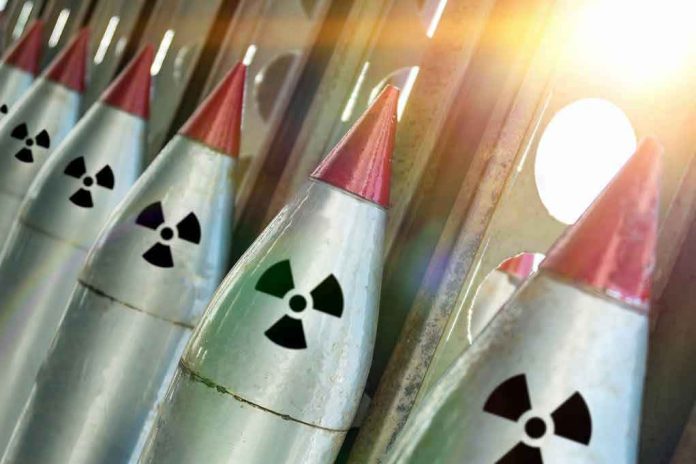
A shocking attempt to acquire black-market uranium by foreign nationals underscores the persistent threat of nuclear proliferation.
Story Highlights
- Three Chinese nationals arrested in Georgia for attempting to buy uranium.
- Georgia remains a transit point for nuclear smuggling in the Caucasus.
- Incident raises concerns over nuclear proliferation and international security.
- U.S. and international agencies involved in nuclear security in Georgia.
Chinese Nationals Arrested in Georgia for Nuclear Smuggling
Three Chinese nationals were recently arrested in the country of Georgia for their alleged attempt to purchase $400,000 worth of black-market uranium. This incident highlights the ongoing challenges in controlling radioactive materials in the former Soviet sphere, where Georgia has long been a known transit point for nuclear materials smuggling since the collapse of the Soviet Union. The involvement of Chinese nationals in this case raises significant questions about the intended end-use of these dangerous materials.
The nuclear black market has roots in the poorly secured Soviet-era facilities and the strategic location of Georgia, which is positioned along key smuggling routes to the Middle East and Asia. Despite international efforts to bolster nuclear security, the region remains vulnerable due to factors like weak institutional capacity, economic instability, and corruption. The substantial monetary value involved in this case underscores the high stakes of nuclear materials trafficking.
Nuclear Security and International Cooperation
Efforts to curb nuclear smuggling in Georgia have involved significant international cooperation. The U.S. Department of Energy and the FBI have been instrumental in providing assistance since the 1990s, while the International Atomic Energy Agency (IAEA) continues to monitor nuclear materials and offer technical support. Georgia has made strides in enhancing its nuclear security posture, including the installation of radiation detection portals and the strengthening of its legislative framework.
However, challenges persist. Porous borders, especially near occupied territories, and limited resources for comprehensive monitoring create vulnerabilities that smugglers can exploit. This latest incident suggests that the networks facilitating nuclear smuggling remain active and adaptable. The international community must continue to support Georgia in closing these security gaps.
Implications for Global Security and Diplomacy
The arrest of these individuals has far-reaching implications for global security. The potential for nuclear materials to fall into the hands of terrorist organizations or state actors seeking to enhance nuclear capabilities remains a grave concern. Additionally, the case could strain diplomatic relations between Georgia and China, with increased scrutiny on the activities of Chinese nationals in the region. Georgia faces pressure to demonstrate its effectiveness in countering nuclear proliferation.
In response to these challenges, experts recommend continued capacity building in source and transit countries, enhanced international cooperation on nuclear security, and investments in technology to improve detection systems. Addressing corruption in security services is also critical to preventing smuggling networks from exploiting weaknesses in governance.
Sources:
Chinese Nationals Held in Georgia Over $400K Black-Market Uranium Plot


